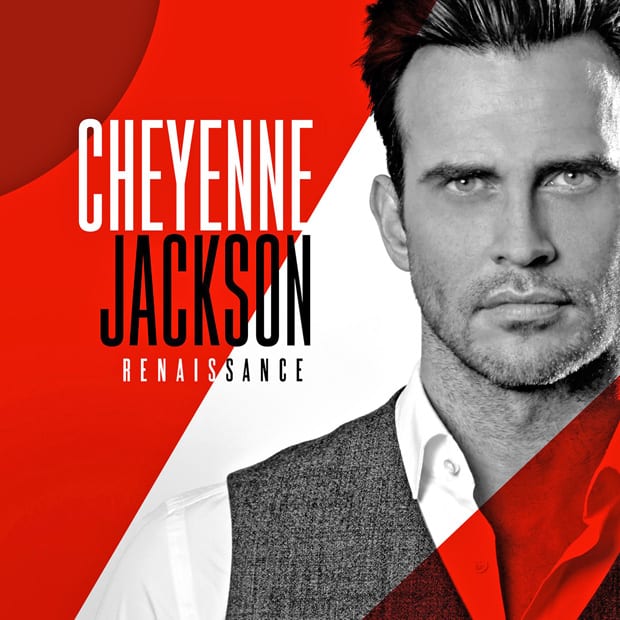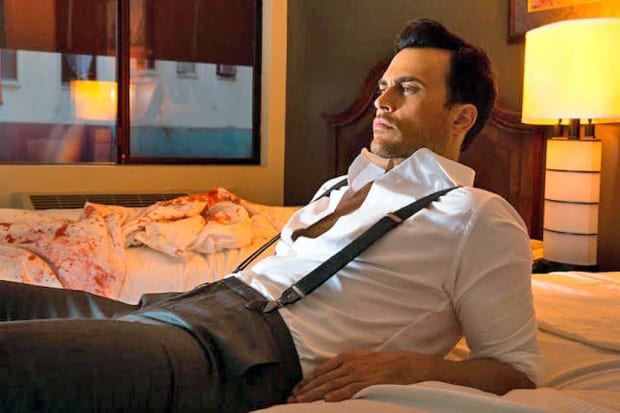Cheyenne Jackson CD shows vocal chops, but stumbles on song selection

ARNOLD WAYNE JONES | Executive Editor
jones@dallasvoice.com
Judges on shows like American Idol often disparage singers by saying their voices are “too cabaret,” or “too Broadway.” It’s a puzzling criticism, because it’s no criticism at all. Broadway and cabaret are incredibly important and successful genres of music that not only endure, but delight and even excite. (Hamilton, anyone? Or ever heard of Streisand?) The implication of such snipes is that because such styles are not radio-friendly “pop,” not “contemporary,” not “hip, young” music, they have no musical value on a singing competition show.
Screw that. Such ignorant critiques merely reveal a lack of imagination on the part of judges. Heck, one of the Idol arbiters in the last years was Harry Connick Jr., whose main genre derives from imitating the Big Band era of the 1940s. Pop music is what we make of it.
 So it is no insult to say that Broadway veteran Cheyenne Jackson’s new album, Renaissance, projects an old-school commitment to “classic” music. From its opening song — “Feelin’ Good,” popularized by retro crooner Michael Bublé but originally written for the 1960s musical Stop the World, I Want to Get Off — Jackson shows an unabashed appreciation for a flamboyant, bombastic show-stopper. With his 22-piece backing orchestra, Jackson demonstrates a facility and great vocal ability in a variety of genres. The message is clear: musical chops are what matter. It’s the singer, not the song.
So it is no insult to say that Broadway veteran Cheyenne Jackson’s new album, Renaissance, projects an old-school commitment to “classic” music. From its opening song — “Feelin’ Good,” popularized by retro crooner Michael Bublé but originally written for the 1960s musical Stop the World, I Want to Get Off — Jackson shows an unabashed appreciation for a flamboyant, bombastic show-stopper. With his 22-piece backing orchestra, Jackson demonstrates a facility and great vocal ability in a variety of genres. The message is clear: musical chops are what matter. It’s the singer, not the song.
Well, sort of.
An individual song is one thing; Jackson shows clarity and power on “Feelin’ Good,” and most of the other tracks included. But the mark of great album is cohesion — a carefully curated lineup of numbers that join together into a theme. A compilation of favorite songs is just a vanity project without direction.
Truth is, Renaissance is an expansion of a series of concerts Jackson gave “inspired by the music of the Mad Men era.” But that’s an unwieldy and wide net — Mad Man took place over the course of the entire ’60s, a decade as musically diverse and constantly changing as any has ever been. Even the TV series moved from underground jazz clubs in its pilot to acid rock hippie music by its series finale seven seasons later.
How do you thread that needle? The answer is: Not all that successfully.
A strangeness emerges in the interplay of his song selection. The brassy second track on the album, “Americano,” swings like an old-school standard. Jackson’s phrasing is clear and his voice catchy, although his reliance on clarity almost comes in the way. His diction is so precise, it lacks the sense of spontaneity that the best jazz must have. “Angel Eyes” is a moody, haunting number — the kind Nelson Riddle used to arrange to great effect — but it seems out of place here. (He could have accomplished more with the intoxicating mystery song “Nature Boy.”)
“Something Stupid” (the comically romantic ballad creepily popularized as a duet between frank Sinatra and his daughter Nancy) is a perfectly pleasant duet with Jackson and pal Jane Krakowski, although it would have been nicer if he had paired up with another man to give it a proper gay twist — the chance to improve upon an inherently silly song and turn it into a modern gay anthem was sadly missed. “Besame Mucho’s” slow samba doesn’t meld well with the with the jazzy swing, or the Broadway blow-out, of the other numbers.
|“I (Who Have Nothing)” sounds as if Jackson may be auditioning to sing the title track in Quentin Tarantino’s next film. I’d actually love to see that happen. His voice is spectacular, but this CD is more compilation than concept album, an audition reel that proves the artist’s talent … but not his judgment.
This article appeared in the Dallas Voice print edition July 15, 2016.












